Filter by
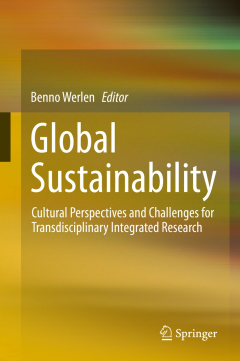
Global Sustainability
This book offers new perspectives of transdisciplinary research, in methodological as well as theoretical respects. It provides insights in the two-fold bio-physical and the socio-cultural global embeddedness of local living conditions on the basis of selected empirical studies from Latin America, Asia, Africa, Australia and Europe. The theoretical foundations of ecological research and sustain…
- Edition
- -
- ISBN/ISSN
- 978-3-319-16476-2
- Collation
- XV, 300
- Series Title
- -
- Call Number
- 910 GLO

US-China Strategic Competition Towards a New Power Equilibrium
This book examines the nature and consequences of strategic competition between the US and China, which affects the global security landscape and the emerging security architecture across the broader Asia-Pacific region. The author illustrates the evolution of Sino-US security interactions from the anti-Soviet alliance, to temporary marginalization, to eventual strategic competition and examine…
- Edition
- -
- ISBN/ISSN
- 978-3-662-46660-5
- Collation
- -
- Series Title
- -
- Call Number
- -
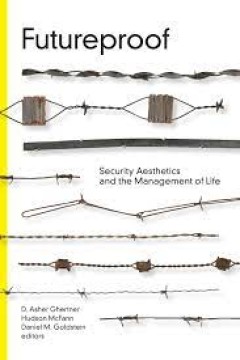
Futureproof Security Aesthetics and the Management of Life
Security is a defining characteristic of our age and the driving force behind the management of collective political, economic, and social life. Directed at safeguarding society against future peril, security is often thought of as the hard infrastructures and invisible technologies assumed to deliver it: walls, turnstiles, CCTV cameras, digital encryption, and the like. The contributors to Fut…
- Edition
- -
- ISBN/ISSN
- 9781478007517
- Collation
- -
- Series Title
- -
- Call Number
- -
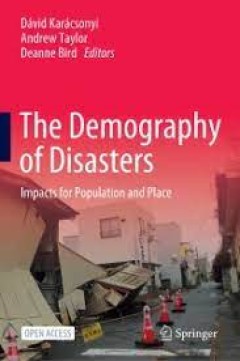
The Demography of Disasters Impacts for Population and Place
This open access book provides worldwide examples demonstrating the importance of the interplay between demography and disasters in regions and spatially. It marks an advance in practical and theoretical insights for understanding the role of demography in planning for and mitigating impacts from disasters in developed nations. Both slow onset (like the of loss polar ice from climate change) an…
- Edition
- -
- ISBN/ISSN
- -
- Collation
- -
- Series Title
- -
- Call Number
- -
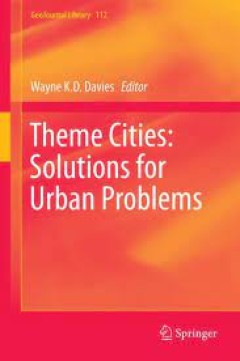
Theme Cities: Solutions for Urban Problems
This book reviews a series of new urban ideas or themes designed to help make cities more liveable, sustainable, safe and inclusive. Featuring examples drawn from cities all over the world, the various chapters provide critical assessments of each of the various approaches and their potential to improve urban life. New Urbanism: creating new areas based on a more humane scale with neighbourh…
- Edition
- -
- ISBN/ISSN
- 978-94-017-9655-2
- Collation
- -
- Series Title
- -
- Call Number
- -
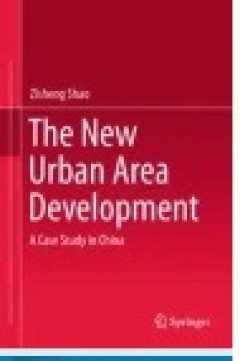
The New Urban Area Development: A Case Study in China
This book examines the formation trajectory and development path of China’s newly formed urban areas, which was the result of an unprecedented massive urbanization process. The analysis is based on the case of Dezhou, Shandong Province. This book systematically introduces strategic studies, planning and design, development and construction, investments, policies and future development of n…
- Edition
- -
- ISBN/ISSN
- 978-3-662-44958-5
- Collation
- XXXV, 417
- Series Title
- -
- Call Number
- -
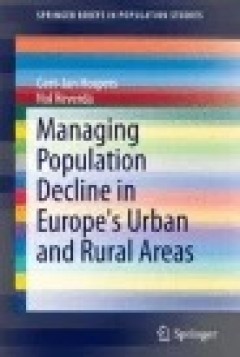
Managing Population Decline in Europe's Urban and Rural Areas
This book explores the challenges population decline presents for Europe’s urban and rural areas. It features recent demographic data and trends not only for Europe as a whole, but also for selected countries, and compares growth and shrinkage from a historical as well as a theoretical perspective. In addition, the book critically reviews relevant notions from geography, sociology, and public…
- Edition
- -
- ISBN/ISSN
- 978-3-319-12412-4
- Collation
- -
- Series Title
- -
- Call Number
- -
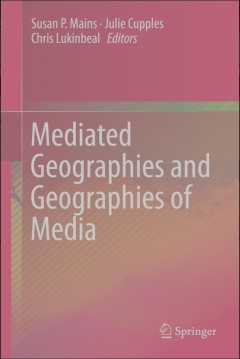
Mediated Geographies and Geographies of Media
This is the first comprehensive volume to explore and engage with current trends in Geographies of Media research. It reviews how conceptualizations of mediated geographies have evolved. Followed by an examination of diverse media contexts and locales, the book illustrates key issues through the integration of theoretical and empirical case studies, and reflects on the future challenges and opp…
- Edition
- 1
- ISBN/ISSN
- 978-94-017-9968-3
- Collation
- IX, 470
- Series Title
- -
- Call Number
- -
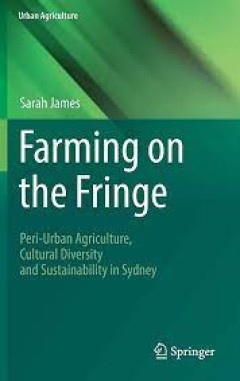
Farming on the Fringe Peri-Urban Agriculture, Cultural Diversity and Sustain…
This volume offers a new perspective to debates on local food and urban sustainability presenting the long silenced voices of the small-scale farmers from the productive green fringe of Sydney’s sprawling urban jungle. Providing fresh food for the city and local employment, these culturally and linguistically diverse farmers contribute not only to Sydney’s globalizing demographic and cultur…
- Edition
- -
- ISBN/ISSN
- 978-3-319-32235-3
- Collation
- XI, 197
- Series Title
- -
- Call Number
- -
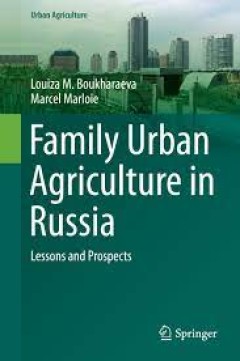
Family Urban Agriculture in Russia Lessons and Prospects
The book results from research carried out by the authors since 1999 on urban gardening collectives in Russia, then from the extension of this research towards collective urban gardening in France, with some investigations in other European Union Member States and Brazil. This research was carried out within the framework of Kazan University (currently, the Institute of Administration and Terri…
- Edition
- -
- ISBN/ISSN
- 978-3-319-11614-3
- Collation
- XVII, 215
- Series Title
- -
- Call Number
- -
 Computer Science, Information & General Works
Computer Science, Information & General Works  Philosophy & Psychology
Philosophy & Psychology  Religion
Religion  Social Sciences
Social Sciences  Language
Language  Pure Science
Pure Science  Applied Sciences
Applied Sciences  Art & Recreation
Art & Recreation  Literature
Literature  History & Geography
History & Geography